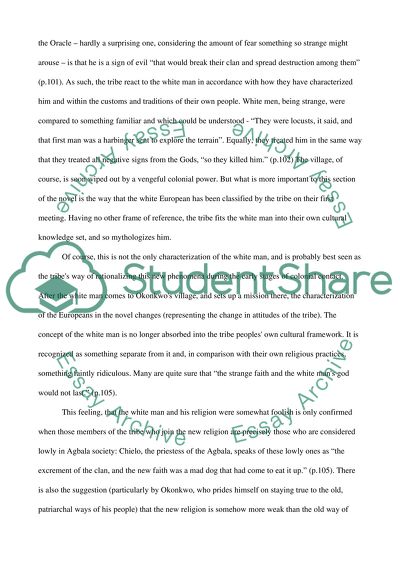Cite this document
(“Chinua Achebe - Things Fall Apart Essay Example | Topics and Well Written Essays - 2000 words”, n.d.)
Retrieved from https://studentshare.org/literature/1510214-chinua-achebe-things-fall-apart
Retrieved from https://studentshare.org/literature/1510214-chinua-achebe-things-fall-apart
(Chinua Achebe - Things Fall Apart Essay Example | Topics and Well Written Essays - 2000 Words)
https://studentshare.org/literature/1510214-chinua-achebe-things-fall-apart.
https://studentshare.org/literature/1510214-chinua-achebe-things-fall-apart.
“Chinua Achebe - Things Fall Apart Essay Example | Topics and Well Written Essays - 2000 Words”, n.d. https://studentshare.org/literature/1510214-chinua-achebe-things-fall-apart.


